Duke has a hare’s legs and Beethoven’s hair. He is tall, white, and Italian, though there may be some Great Pyrenees in him, which is French. His extra-long limbs mean his default movements are hunkering and loping. Meanwhile his bony hind legs are chiseled and tufted and I can’t explain why, but scandalous. For head fur he has been allotted a disorganized pompadour that turns into eyebrows at some point.
Duke’s fluffy torso and predatory slouch make him resemble a sheep and a wolf at the same time. It is a trans-species optical illusion that is consistently disorienting, and consistently funny.
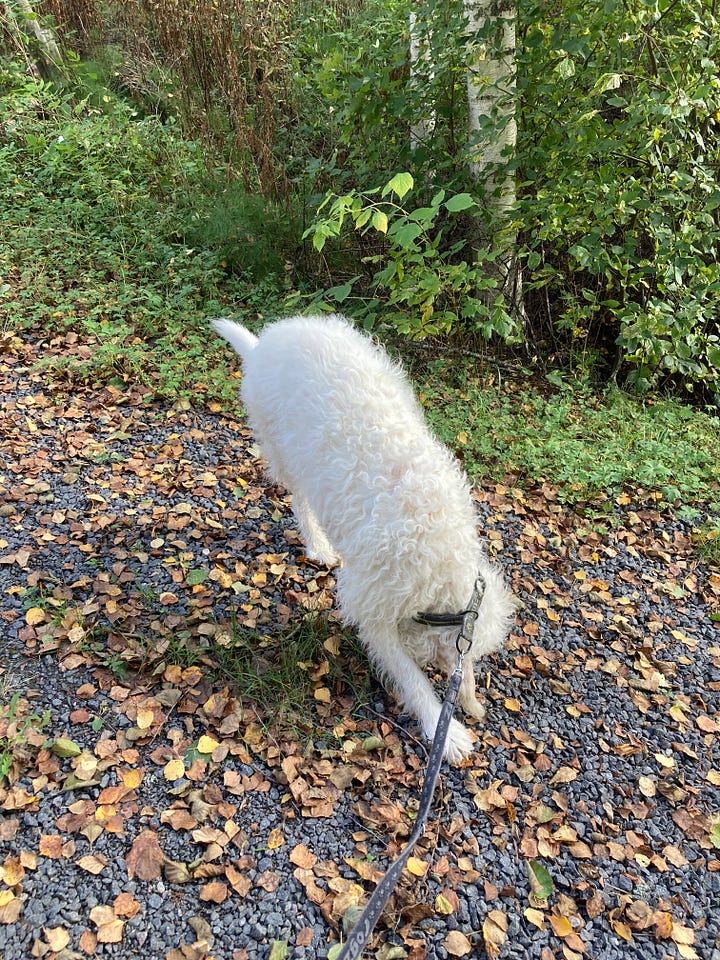
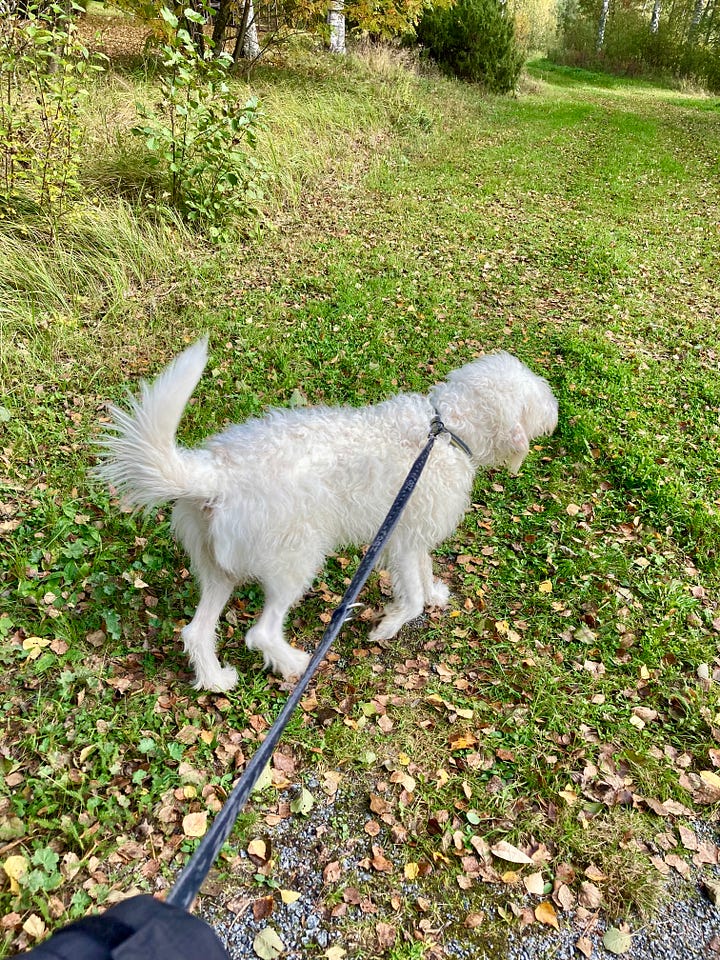
In addition to the hairdo Duke has the countenance of an 18th-century classical composer. He is physically present but mentally adrift, regularly transfixed by some invisible and apparently disturbing subject matter (or devising a symphony). He’s spacey and disheveled—flagrantly unkempt—yet he emits a certain cultured air. I assume the result of centuries of pure European canine breeding.
He seems crumby. (CC: Holden Caulfield) By which I mean, if he got up from a piano, you get the feeling he’d leave crumbs on the keys. What kind of crumbs? Who knows. Beef Wellington shell. Hostess fruit pie. Toast from breakfast three days ago.
Finally, and notably, Duke is prone to windswept-ness. This is a quality I had not considered the possibility of existing in any living being and find crushingly splendid, not to mention totally inspiring.1
It’s hard to say if Duke is a doofus or a genius. He lives in Finland.
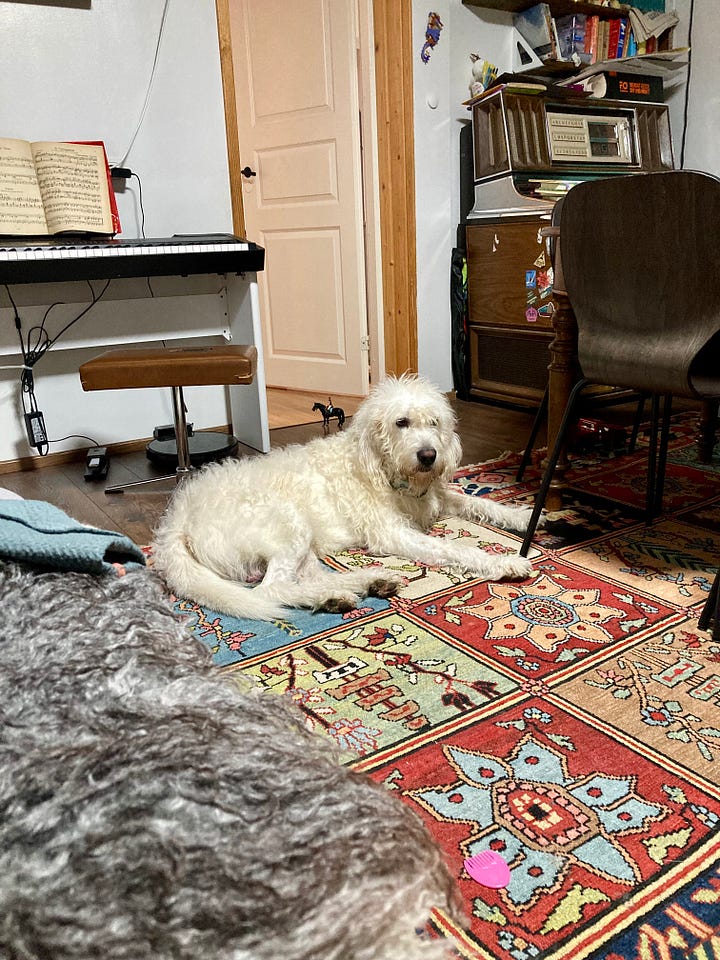
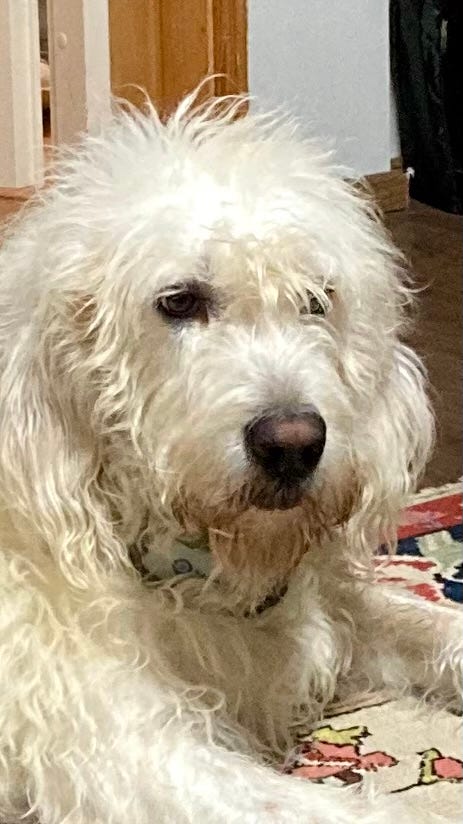
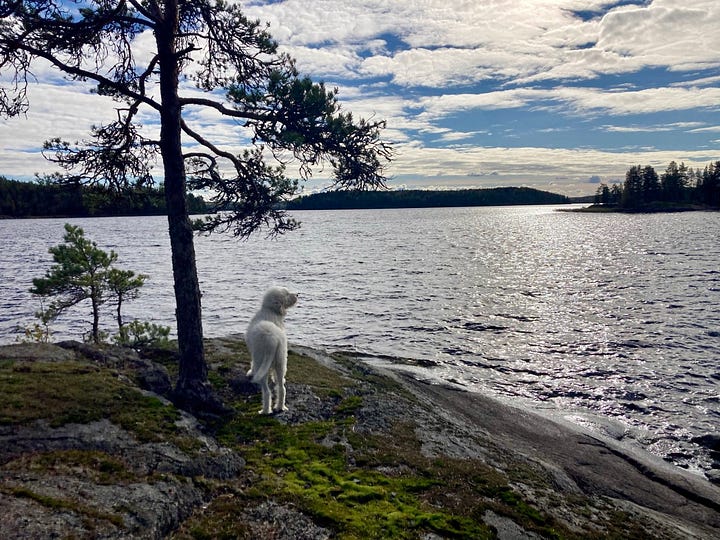
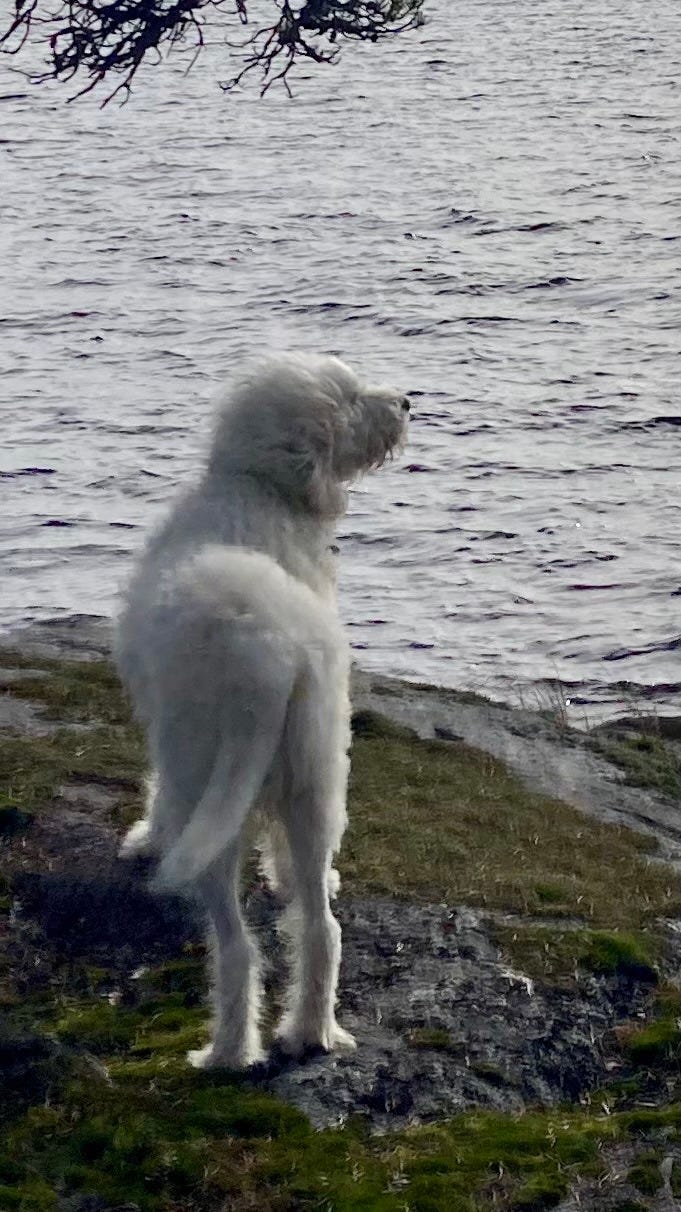
It is there in a Finnish lake district that I encounter Duke’s freakish, beast-like strength. He pulls me relentlessly down a gravel road on the last day of September, chasing cars.2
The occasion: a walk. The twist: Duke doesn’t walk, per se. What Duke does do: gallop belligerently. Our path is a lightening bolt as he zigzags blithely from ditch to ditch and I stumble behind gripping the leash like I’m water skiing. Arms painfully taut, I skid over entire swaths of land and sporadically jog against my will. I would describe our pace as unpredictable and nonconsensual.
Later, I read the Great Pyrenees defined as an “immensely powerful working dog.” Checks out, checks out...
Despite the unanticipated fact that walking Duke is neither easy nor fun, I try to be accommodating, nonplussed. I am, after all, the sole party of the human species present—supposedly evolved. And furthermore, Duke is the pet of the family I’m staying with. I’m on his turf and at his behest, in a way.
But the strain of holding on is overwhelming me. I’m getting upset, I can feel it. I can’t get used to getting dragged. (Who can?)
I plead. “Duuuke. Come onnn. Please, Duke. Please.”
Suddenly it’s not funny anymore. Suddenly I’m so, so mad.
I snap. I yank on the leash and, as I’m all too aware, Duke’s neck, jarring him backward out of his absentminded trot and seemingly interrupting some amusing dog daydream, which are probably wondrous and sacred.
Instantly, frustration liquifies into shame, and floods my heart.
There I go again. Here I am again. In some Nordic countryside. Under a new wide sky. An ocean, a sea, and stacks of latitudes away from all my local pitfalls and I’m still brash, selfish, volatile me. A thought I brought like an infection returns: that I’m not gentle, not graceful. I’m not even always kind to lowly creatures. I’m interiorly ugly—a wretch, a spaz.
In about six minutes the entire nature of the day and the world has mutated from bright and possible to grim and weary. Hope can invert to hopelessness that fast.3
I crunch down the lane. The wind chills the tears on my cheeks like iodine. Finally I decide to attempt a strategy I occasionally employ when I need to manually override despair: I make a list of five good things about what’s happening right now.
One. I am strengthening my hands and fingers. (I'm gripping a thick cord leash.) They don't usually have to work this hard. The fine muscles will get imperceivably stronger, and strong hands are beneficial for a number of tasks. (A few days later I am muddling lingonberries with a wooden pestle4 when I think, “I am more effective at this than I would have been three days ago because my hands are stronger.”) ((I embrace the placebo effect wherever possible.))
Two. Duke was pent up all afternoon and now he’s getting a good long walk. He isn’t able to roam freely on the farm so he’s probably just excited to be going this far and that's why he's tugging so much—he’s happy. Maybe later he’ll be tired, worn out in that nice way we all like to be.
Three. Finland has some of the cleanest air in the world and I am getting a dose of it. This is good for my health.
Four. If I’m dismayed by my short emotional fuse, this is an opportunity to lengthen it. I can reconceptualize this experience: It’s not a demoralizing outing with an unfathomable dog, it’s a patience training session. The only Greek philosopher I can reliably invoke says that one should match inner resources to outer challenges, e.g. self-restraint for temptation, stamina for pain, forbearance for imbeciles. That’s all life is, really (maybe)—choosing your tools. Making an effort to employ them.
Five. I can check in with myself. (Wasn’t a peripheral point of this trip to do just that?) It’s an unallocated hour to notice and confront any latent discomfort, release worries I’m carrying needlessly, buff out pointless pain. It’s the chance I’m always wanting to spend some wide-open time thinking about how I’d like my life to be, that always-someday life up ahead, purportedly waiting for me, supposedly what I’m ever walking to.
So I do. I skim off a layer of mind-scum. I have a quiet epiphany or two. And eventually I recognize, with relief and real humility—real humility is always a relief—that I am becoming softer. And paradoxically, hardier. Sheeplike. But wolfly.
We make it to the end of the road (metaphor not lost on me). Duke laps at a shore, poops in wild grass. My state of mind has morphed again. I admit my earlier optimism was fake; garish, chintzy. Artificial sweetener. This feeling is truer, chewier. Now I’m walking the other way back down the lane and I don’t know where I’m going, but I also know a little more where I’m going. Or at least where I’d like to go.
🐑
The next day, on an island in a lake I don’t know the name of, I haul wheelbarrows of firewood from one end of the property to the other, trampling lichen and wandering paths in my mind, too. Duke sniffs the wind from various outposts.
After the work is done I take a sauna. I sit silent, spent, content. Dripping in sweat, I open the door and there is Duke right underfoot, coiled on the mat. He says nothing—he’s a dog—but I feel he is conveying vigilance and protection. Is he offering solidarity because I’ve accepted solitude? Was his aloofness all-knowingness all along? Is this dog… a monk? This dog is a bewilderment. And a vast, soundless comfort.
I sprint lightly to the dock and descend a submerged metal ladder, then lean back into the bracing lake.
“Nothing on earth is more gladdening than knowing we must roll up our sleeves and move back the boundaries of the humanly possible once more.” (Annie Dillard)
I didn’t know dogs were still doing that, incidentally. (Car-chasing) It strikes me as Classically Dog. Possibly another result of Duke’s urbane heritage.
“Virgie never saw it differently, never doubted that all the opposites on earth were close together, love close to hate, living to dying; but of them all, hope and despair were the closest blood—unrecognizable one from the other sometimes, making moments double upon themselves, and in the doubling double again, amending but never taking back.” (Eudora Welty)
Don’t ask. (Or do!)




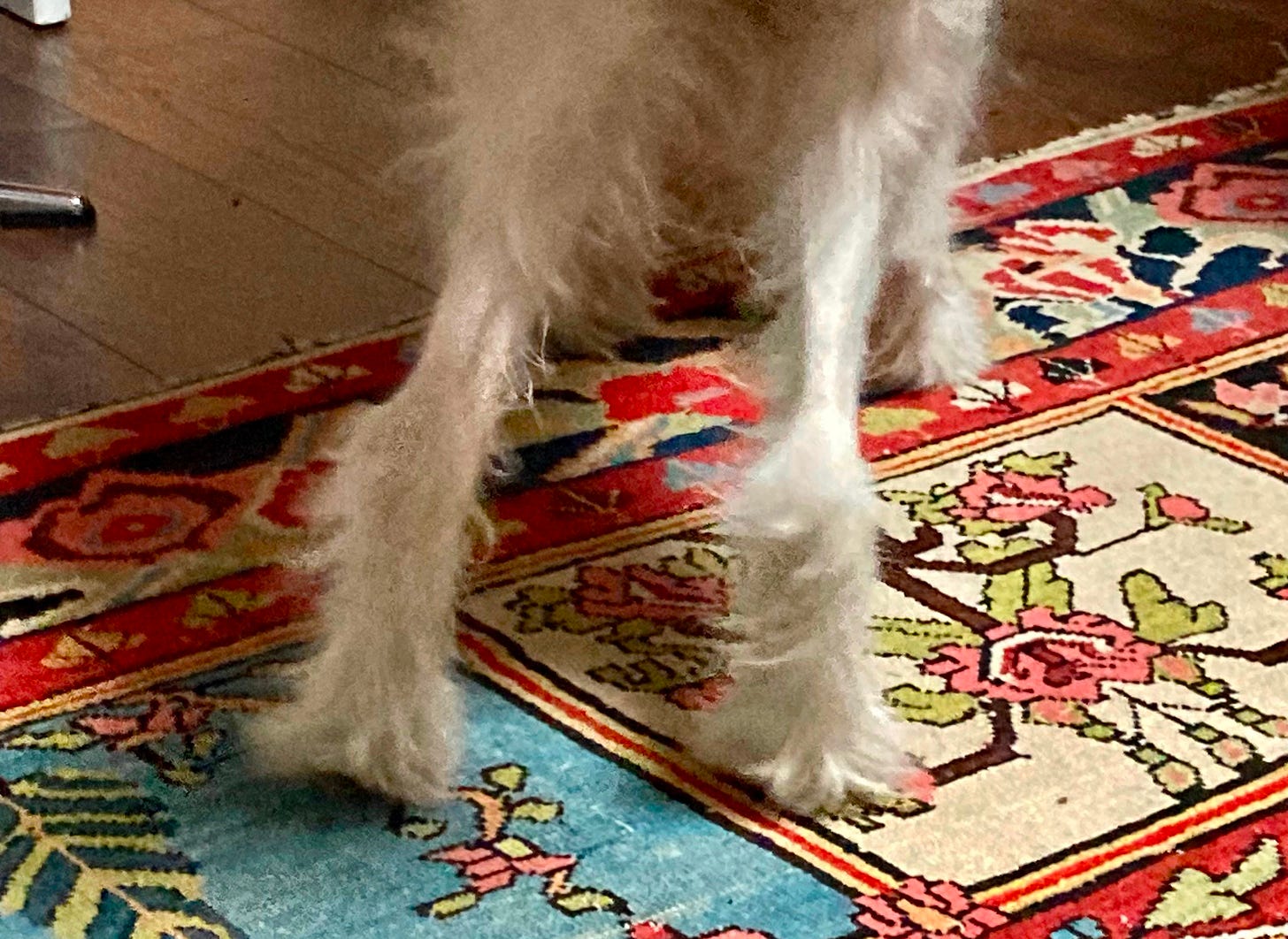

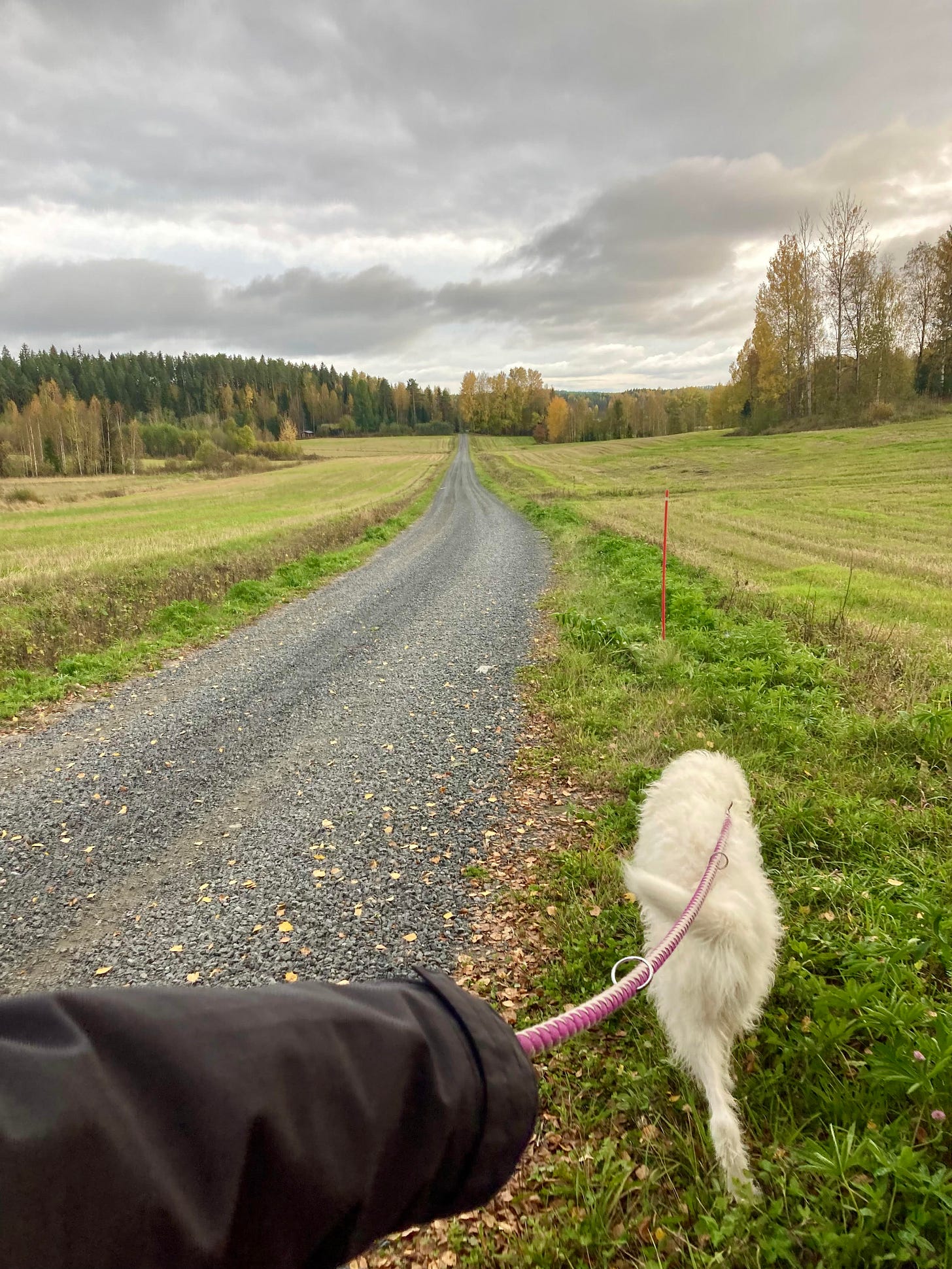
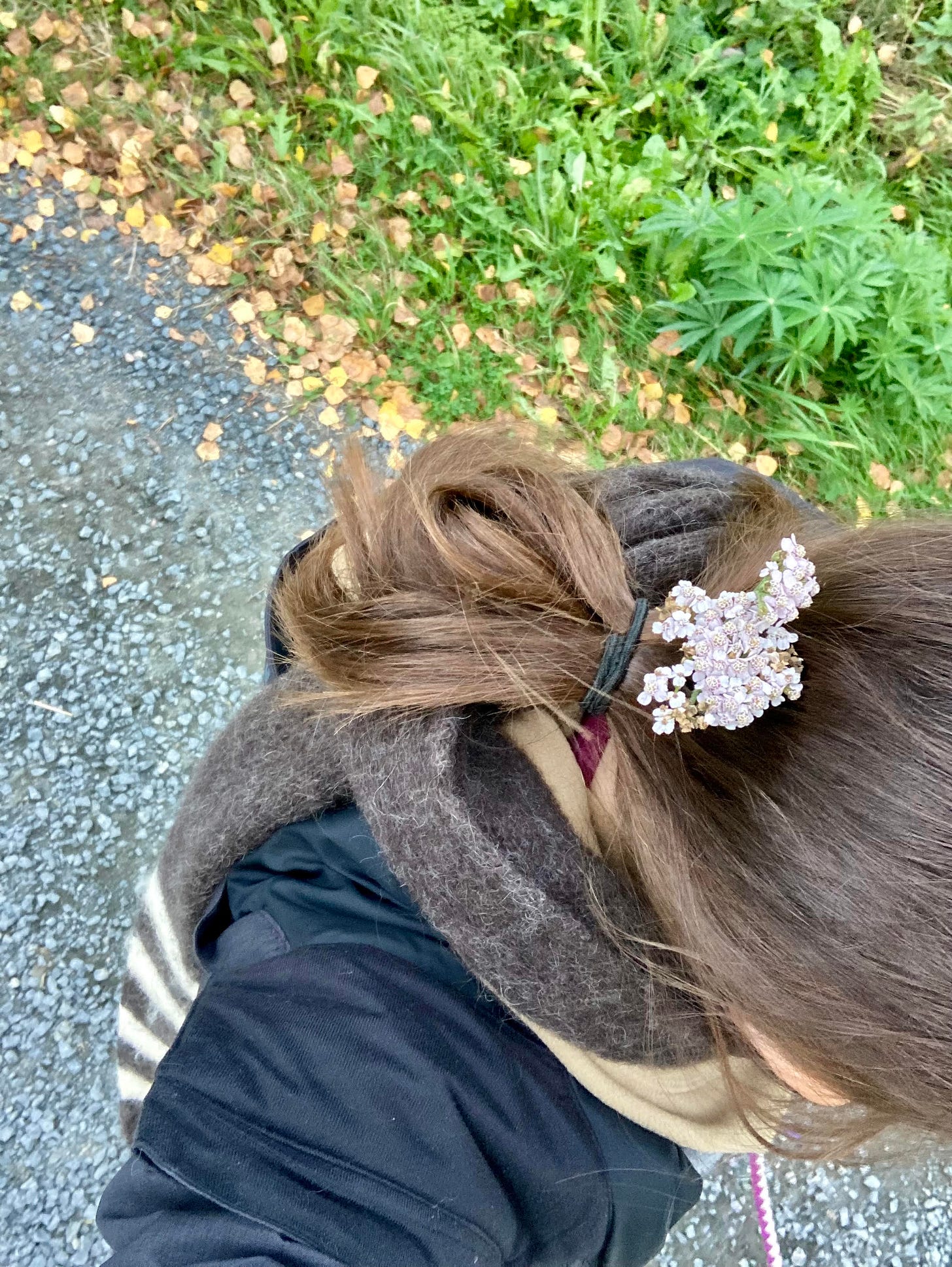
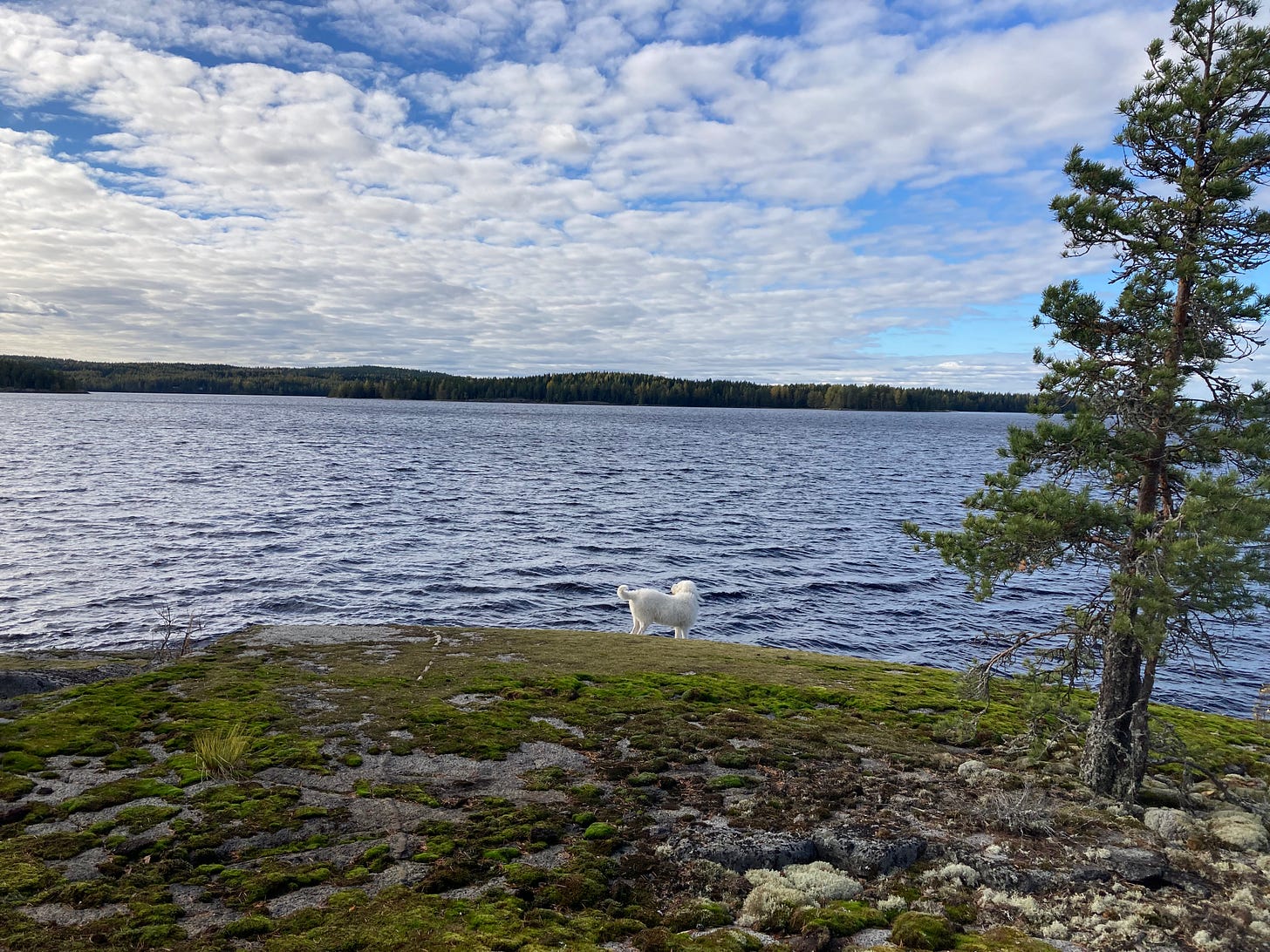
A delightful meditation! Impressed by the invocation of a Greek philosopher, sad that it's Epictetus.